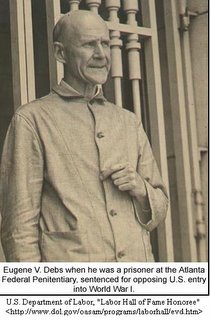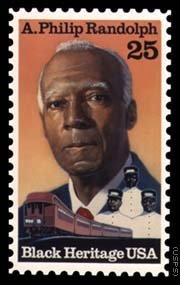
Labor History Timeline
Labor History on the Internet
Since Labor Day is approaching I would like to write about the reason for the holiday. To pay tribute to the people in America that have built our great country. I don't want to toot the horn of the president or talk about Iraq. Immigrants from around the world help build this nation. From the Irish, German, and Chinese, to the Christian, Islamic, and Athiest. Many Americans have fought and given their lives to support labor unions in America. My grandfather was from Italy and he helped construction in Chicago. My other grandfather was from Germany. He became an American farmer in Alabama. Both of these men and my grandmothers worked hard during the Depression. My father told me stories of his sister having to work in factories at the age of thirteen to support him and his siblings after they became orphaned. My father shined shoes and did what ever menial jobs to help with the family. Times were rough. I regret that my family had to work in factories as children or live such a life. But, thankfully, we have protection in the USA so that children do not have to work in such conditions. This is why we celebrate Labor Day. To honor those that spoke up and stood up. To honor those that work everyday to provide for their families and to follow their dreams.
As we know, many right wing groups are trying to tear down these labor unions. They do not want people to unite and speak up for the rights that any human should be entitled. There have been great Americans in history, such as Eugene V. Debs that fought for the unions. He also tried to run for president five times. During these times Debs was arrested for his beliefs. He was charged with sedition several times to stop his movement.
Brief history of Eugene V. Debs
Socialist Eugene V. Debs was one of the major players in American politics at the turn of the 20th century. He made five attempts to gain the presidency - in 1900, 1904, 1908 1912 and 1920 - all as the standard bearer of the Socialist Party. He conducted his last campaign from behind the bars of a federal prison. A gifted orator, Debs rivaled William Jennings Bryan in his ability to move a crowd with his words.
Born in Indiana in 1855, Debs went to work for the railroad at age 14 but soon gave it up at his mother's urging. He became active in the union movement forming the American Railway Union, the nation's largest, in 1893. Arrested during the Pullman Strike of 1894, he served six months behind bars. In jail, Debs converted to socialism. He helped found the Social Democratic Party of America in 1897, the Socialist Party in 1901 and the Industrial Workers of the World in 1905. "I am for socialism because I am for humanity" he declared.
He opposed America's entrance into World War I and denounced the Espionage Act designed to silence all antiwar sentiment. In 1918, he received a 10-year prison sentence for his public opposition to the war. At his trial, Debs admitted he spoke the words the federal government considered traitorous and addressed the jury in his own defense. "I am doing what little I can to do away with the rule of the great body of people by a relatively small class and establish in this country industrial and social democracy." A guilty verdict sent Debs to the federal prison in Atlanta.
In 1920, the Socialist Party again nominated him as their presidential candidate and over 915,000 voted for prisoner #9653. President Wilson vigorously denied a request for Deb's pardon in 1921. Finally, Warren G. Harding released Debs under a general amnesty on Christmas Day 1921. Harding asked the old socialist to stop by the White House. "I have heard so damned much about you, Mr Debs, that I am very glad to meet you personally" Harding remarked at their meeting. Debs died in 1926.
Growing up in Chicago, Jane Addams became one of my heroes in history. She worked to further womens, childrens, minorities, and immigrants rights. She began and joined many organizations that helped Americans, especially women and children. She was also involved in peace movements.
A Brief History About Jane Addams
Detailed timeline and photo essay about Jane Addams
Born in Cedarville, Illinois, on September 6, 1860, and graduated from Rockford Female Seminary in 1881, Jane Addams founded, with Ellen Gates Starr, the world famous social settlement Hull-House on Chicago's Near West Side in 1889. From Hull-House, where she lived and worked until her death in 1935, Jane Addams built her reputation as the country's most prominent woman through her writing, settlement work, and international efforts for peace.
Social settlements began in the 1880s in London in response to problems created by urbanization, industrialization, and immigration. The idea spread to other industrialized countries. Settlement houses typically attracted educated, native born, middle-class and upper-middle class women and men, known as “residents,” to live (settle) in poor urban neighborhoods. Some social settlements were linked to religious institutions. Others, like Hull-House, were secular. By 1900, the U.S. had over 100 settlement houses. By 1911, Chicago had 35.
In the 1890s, Hull-House was located in the midst of a densely populated urban neighborhood peopled by Italian, Irish, German, Greek, Bohemian, and Russian and Polish Jewish immigrants. During the 1920s, African Americans and Mexicans began to put down roots in the neighborhood and joined the clubs and activities at Hull-House. Jane Addams and the Hull-House residents provided kindergarten and day care facilities for the children of working mothers; an employment bureau; an art gallery; libraries; English and citizenship classes; and theater, music and art classes. As the complex expanded to include thirteen buildings, Hull-House supported more clubs and activities such as a Labor Museum, the Jane Club for single working girls, meeting places for trade union groups, and a wide array of cultural events.
The residents of Hull-House formed an impressive group, including Jane Addams, Ellen Gates Starr, Florence Kelley, Dr. Alice Hamilton, Julia Lathrop, Sophonisba Breckinridge, and Grace and Edith Abbott. From their experiences in the Hull-House neighborhood, the Hull-House residents and their supporters forged a powerful reform movement. Among the projects that they helped launch were the Immigrants' Protective League, the Juvenile Protective Association, the first juvenile court in the nation, and a Juvenile Psychopathic Clinic (later called the Institute for Juvenile Research). Through their efforts, the Illinois Legislature enacted protective legislation for women and children in 1893. With the creation of the Federal Children's Bureau in 1912 and the passage of a federal child labor law in 1916, the Hull-House reformers saw their efforts expanded to the national level.
Another great American that help change racial and social injustice was A. Philip Randolph. He fought for the rights of sleeping car porters and formed the BSCP (Brotherhood of Sleeping Car Porters.) He then went on to form the March on Washington Movement (MOWM). He organized the March on Washington Movement (MOWM), based on the Ghandian principle of nonviolent direct mass action. The MOWM won its first major victory in June 1941, when President Franklin Roosevelt issued an Executive Order banning discrimination in the federal government and the defense industry, after Randolph had threatened to lead a march into the nation's capital. The achievement catapulted Randolph into being known as "the towering civil rights figure of the period." In 1948, Randolph secured another historic Executive Order from President Harry Truman to ban racial segregation in the armed forces.
A Brief History of A. Philip Randolph
A. Philip Randolph was born April 15, 1889, in Crescent City, Florida. He migrated in 1911 to Harlem, becoming a prominent young intellectual -- one of the "race radicals" drawn to "the Negro capital of the world."
He co-founded a journal, The Messenger, which fiercely opposed American participation in World War I, thundered against lynchings, protested the treatment of black soldiers and advocated socialism and labor unionism as solutions to racial injustice.
In 1925, Pullman porters sought Randolph's help in organizing their workforce into an independent labor union. The powerful Pullman Company had always contemptuously silenced criticism of its treatment of porters and, for the next twelve years, opposed recognizing the new Brotherhood of Sleeping Car Porters (BSCP). It was the longest and bitterest battle of Randolph's career -- one of the most rigorous tests of his convictions and character.
By 1927 the BSCP claimed a membership of 5,700. Still, ongoing organizational and educational effort was necessary to retain and increase membership, while simultaneously opposing the Pullman Company. Effective January 1927, BSCP leaders instituted an internal password and sign associated with porters' everyday mores of racial pride, religion and parental obligation. No porter without his 1927 card was eligible to receive the password ("SOLIDARITY") and sign (left arm extended downward in a clenched fist).
Not until 1937 did the BSCP win its epic fight to represent the porters. After the passage of enabling labor laws, the Pullman executives finally condescended to bargain with Randolph and his negotiating team.
Labor movements of the 1800's and 1900's changed many laws in the USA and helped protect our children in America. Unfortuately, child labor is still being exploited in many parts of the world. If it were not for such organizations like the National Child Labor Committee NCLC established in 1904, such laws like the Act of Congress in 1907. The mission of this legislation was "promoting the rights, awareness, dignity, well-being and education of children and youth as they relate to work and working."
There are many Americans that worked for social change. Most of these people were pacifists that did not believe in war or war profiteering. They believed in humanity and understood that everyone should have equal rights. I ask that you all educate yourselves about the history of labor organizations. The good that they did in American is immeasurable.
Sunday, September 03, 2006
Labor Day... The True Meaning
Posted by Michelle at 1:13 PM
Subscribe to:
Post Comments (Atom)
0 comments:
Post a Comment